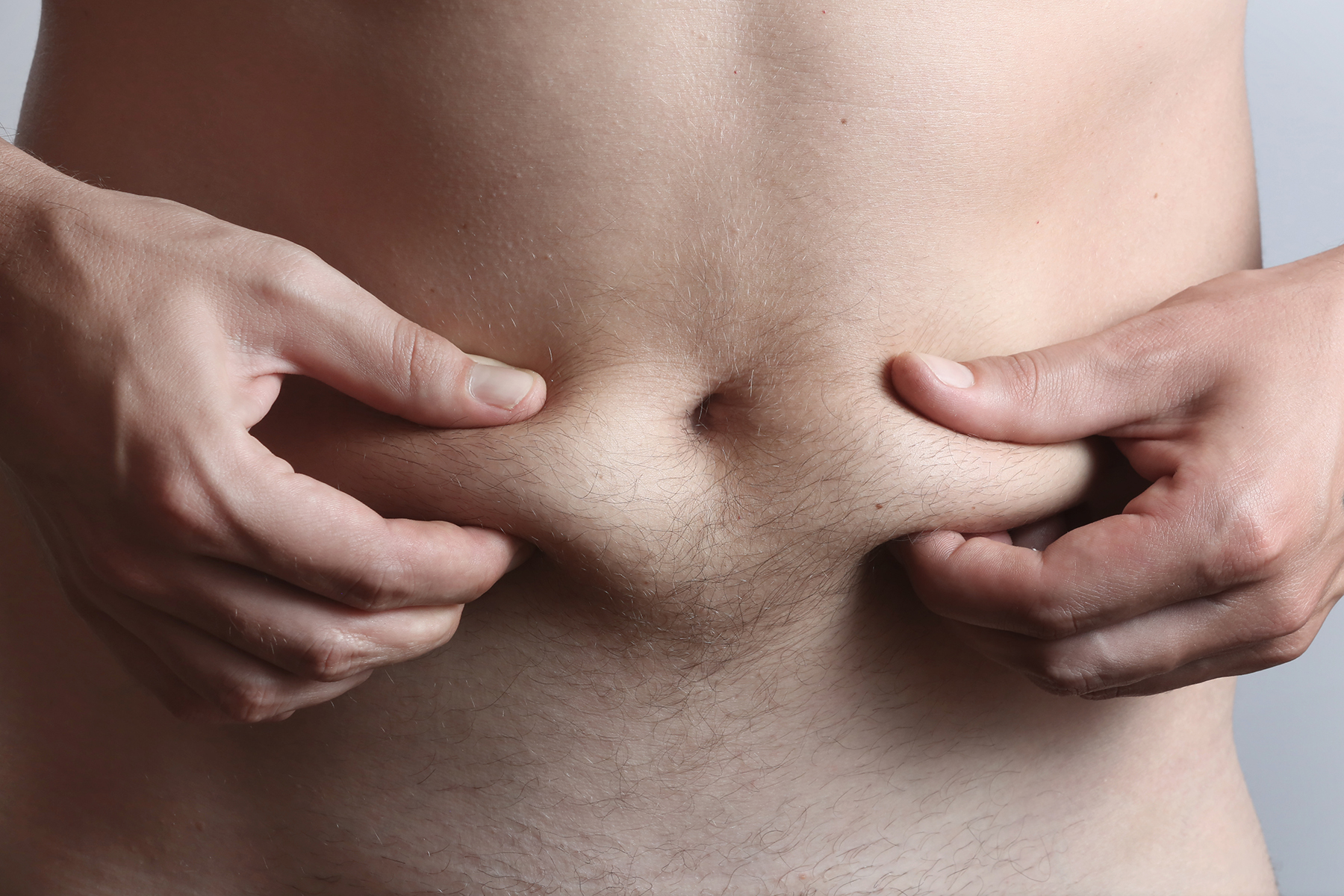It is a commonly held myth that eating disorders are only experienced by girls and this is not something parents of boys, or young men should be concerned about. However, this is patently not the case, and sadly this perception makes it even harder for men and boys to feel they can admit that they have an eating disorder and seek the help that they so desperately need.
As an eating disorder treatment centre, we’re passionate about supporting those people suffering from eating disorders and helping them to recover. In this article we want to explore the topic of men and eating disorders and stress the fact that eating disorders do not discriminate by sex, age, skin colour or class. Eating disorders affect people from all walks of life and all genders.
Unfortunately, research on men with eating disorders has been limited by the stereotype of this being a female problem, but it is estimated that one-in-four people suffering from an eating disorder are male. According to the National Eating Disorders Association, 70 million people live with eating disorders worldwide. This means that over 17 million men suffer from an eating disorder. Given this is a chronically underdiagnosed disorder in men, this number is probably a lot higher, yet it is not something which is being talked about and this must change.
Lack of discussion about men and eating disorders, and eating disorders being represented in the media as a female problem, leads to a feeling of shame and stigma for any boy or man with issues around food or body image. There’s a perception that any boy feeling bad about their body is being silly and simply needs to “man up” and get over it.
This is highly dangerous, as eating disorders are serious mental health disorders and sadly ones which very often have fatal consequences if help is not sought. The stigma around men and eating disorders means that men are at a higher risk of dying of anorexia, due to receiving a diagnosis later in the course of their illness. This has to stop!
Body image and the media
Just like women and girls, men and boys are constantly exposed to the so called “ideal” bodies on social media, on the TV, in magazines and films. Men in advertising, fashion and music tend to be highly muscular and with a very low body fat and this gives adolescent boys an unattainable or unrealistic goal to aim for and a sense that a normal body is not OK.
Just like women, this leads to poor body image, lack of confidence and a confused and negative relationship with food and exercise. It can lead to poor mental health, isolation and even suicidal thoughts, so must be taken seriously.
Please ask for help
We want to say to any boy or man who is suffering from an eating disorder, that it isn’t a weakness or something silly, it’s a serious disease and one that usually needs treatment to overcome. But, there’s lots of support out there and treatment is highly effective. If you ask for help and tell your GP, a parent or reach out to a help group or eating disorder charity, you will get the support you need to get through this.
What you are going through is real and we know it’s hard to speak up, but treatment is highly effective, especially if you seek help early. It is possible for you to feel good about yourself again, build up your confidence and strength and develop a healthy relationship with food, but you need to seek that help, as unfortunately most people aren’t looking for the signs in men and boys, as they do in women and girls.
Please don’t let embarrassment or shame stop you from getting help. Call the Beat Helpline, or contact us for support and advice, with no obligation and in total confidentiality.
Parents – look for the signs and take your sons’ body issues seriously
Men suffer from anorexia, bulimia, binge eating disorder and a whole range of eating disorders, just like women. However, eating disorders present differently in men and women, because men are looking for leanness and muscle definition and tend to use compulsive exercise along with caloric restriction to achieve this. The high muscle density then distorts BMI, and can mean that serious eating disorders in men are not caught early enough.
Men and boys are encouraged to be strong and “bulk up” and often follow extreme diets and exercise regimes to try to reach these goals. When this becomes obsessive, they can turn to steroids, supplements and limiting food groups or calories to such an extent that it is dangerous.
The goal is to be muscular, rather than thin, so look out for excessive thoughts and behaviours around developing muscles and limiting food to reduce body fat and increase the visibility of these muscles. There is such a thing as muscle dysmorphia, where no matter how big their muscles, or how strong or fit they look, their perception is that they aren’t good enough, or big enough, and this can cause distress and ramp up the eating disorder to a dangerous degree. Suggest they speak to someone about their concerns and take them seriously if they share their fears.
It may seem like a surprising connection, but athletes are at an increased risk of eating disorders, and so if your son is an athlete, you should be paying extra attention to their behaviours around food and exercise and their feelings about their bodies. According to a paper by the North Dakota University System, 33% of male athletes are affected by eating disorders and this increases with sports such as wrestling, rowing, cross country, gymnastics, swimming and diving.
Homosexual and bisexual boys are also at a greater risk of developing eating disorders.
Please know that there’s plenty of help out there and support them to go to the GP, or speak to a therapist, as soon as you suspect there may be a problem.
The health implications of eating disorders in men
Sustained calorie restrictions and excessive exercise takes a massive toll on your body and can lead to serious problems with the heart, digestive system and thyroid in both men and women. In men with eating disorders, there is a higher risk of osteoporosis and bone disease and a decrease in testosterone and Vitamin D levels.
Unfortunately, there is a higher risk of mortality for males with eating disorders and eating disorder prevalence is increasing faster in men and boys, but treatment is highly effective. Early intervention is crucial to reducing long term health risks associated with eating disorders and to stopping the fatalities, which are becoming more common.
Treatment and Support Options
As the eating disorder charity BEAT so beautifully puts it – “Everyone deserves treatment for their eating disorder, and a full recovery is possible.”
We wholeheartedly agree with this message and want to stress that you shouldn’t let your gender stop you from getting help.
There’s no such thing as a “typical” person with an eating disorder and eating disorders manifest in a wide range of ways. You shouldn’t feel embarrassed or ashamed to admit that you’re struggling with an eating disorder, it’s a mental health condition and a serious disease and men and boys deserve help, just as women do.
Please try and share with a close friend or family member, as soon as you start to feel bad about your body, or as soon as you recognise that your habits, thoughts and behaviours around food and exercise have become excessive, obsessive or negative. If you don’t feel that you can open up to someone you know, and you’re in the UK, you can call the Beat Helpline or check out their eating disorder support services.
A good place to start to ask for help is to make an appointment with your GP to discuss your thoughts, feelings and behaviours. They will listen to you and check your health and weight and then decide next steps on who can help you best. This may be a counsellor, therapist, nutritionist, support group, or perhaps a combination of all the above.
In some cases, where behaviours are longstanding and extreme, and the individual or their family can’t control the problem in a home setting, a residential eating disorder treatment centre is recommended. This offers a safe and highly regulated environment, with intense treatment and experienced professionals available 24-7 to help you overcome your struggles with food. A team of therapists, nutritionists and counsellors will be assigned to your case and design a bespoke programme of treatment to meet your individual needs.
At The Bridge, we work on developing your physical and mental strength and resilience. Our nutritionists prepare a meal plan of nutritious food to nourish your body. Our therapists and counsellors, discuss how you’re feeling, the cause of your eating disorder and your confidence and sense of self. We also give you the tools to improve your outlook, break destructive patterns of thinking and behaviours and deal with difficult situations or triggers without returning to your old behaviours. You’ll have body image workshops, nutritional rehabilitation and learn how to care for your body and mind. You’ll leave our eating disorder treatment centre healthier, stronger and more positive than you could imagine, with a more positive outlook on life and ready to take on every challenge that comes your way.
Find out more about how we help clients recover from eating disorders on our website or contact us to discuss your or your loved one’s needs.




